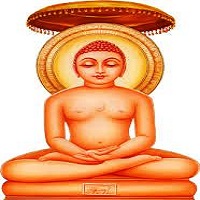Life Sketch of Lord Mahavira
Samani Amal Pragya Ji, Jain Vishwa Bharati, Ladnun
April 20, 2024, 08:30:03

Lord Mahavir is considered the founder of Jainism. He was born in 599 BC, at Kshatriyakund, Bihar, on the 13th day of the bright half of the moon, in the month of Chaitra. He was the 24th and the last Tirthankar (teaching god who preaches dharma).
He was born to King Siddartha and queen Trisala, Mahavir was named Vardhaman by his parents. He was born into a royal family, but royalty and the luxurious life did not please him. He was in constant search of inner peace and spirituality.
In his early years, Vardhaman developed a deep interest in the core beliefs of Jainism and started meditating. At the age of 30, he renounced the throne and his family to seek spiritual truth. He led a life of an ascetic and for more than twelve years he practiced rigorous penance and profound austerity before attaining 'Kevala Jnana' or omniscience.
PRINCIPLES OF LORD MAHAVIR:
According to Mahavira, to live a righteous life one should follow the following principles:
• Nonviolence (Ahimsa) causing no harm to the living beings
• Truthfulness (Satya) to speak the truth
• Non-stealing (Asteya) not to possess things that do not belong to you
• Chastity (Brahmacharya) not to indulge in sensual pleasures
• Non-possesion (Aparigraha) not to get attached to material things.
His teachings are the main pillars of Jainism, also known as 'Jain Agamas'.
Final remarks
Lord Mahavir Jain was a great spiritual leader whose teachings continue to inspire people around the world. His emphasis on non-violence, compassion, and self-discipline has had a significant impact on Jainism and the world at large. His legacy has influenced many spiritual leaders, movements, and initiatives, and his teachings continue to inspire people to lead virtuous lives and work towards the betterment of society.
Mahavir’s life and teachings offer valuable lessons for people of all faiths and cultures, emphasizing the importance of compassion, self-discipline, and non-violence. His legacy is a testament to the power of spiritual leadership and the potential of individuals to make a positive impact on the world.
(Tripurainfo)